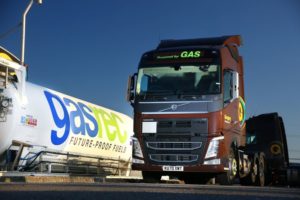Gregory Group sets 2038 net zero target
Here at Gregory Group we have been focused on our sustainability agenda for a number of years. We take a proactive approach to the impact the logistics industry has on the environment and for this reason we have pledged to be fully net zero by 2038.

Paul Jefferson, Group Legal, Fleet & Sustainability Director explains why:
“The transport sector is the highest contributor to UK greenhouse gas emissions, accounting for 26%, with both heavy and light goods vehicles alone contributing to over 10% of the total. We firmly believe that it is our responsibility to lead the way in changing this statistic.
Many of our customers have set net zero targets for 2040 so, by setting our target two years prior, we will be in a solid position to be able to help our customers deliver on their ambitions.
At the end of 2038, the Group will be entering its 120th anniversary, so it feels like a poignant line to draw. From our origins transporting coal by horse and cart, we have grown to deliver a huge array of goods for well-known brands across the UK. At any given time, we have over 1,200 Gregory Group trucks on the UK roads.
We know that the logistics industry has one of the biggest battles to achieve carbon net zero, but we are not willing to sit back and wait until that journey is easier. We want to, and already are, making changes today.”
We have set a target to be net zero by 2038 across Scope 1, 2, and 3. In the short-term, we aim to reduce our carbon emissions by over 40% by 2030. This will be supported by a commitment to the Science Based Targets initiative (SBTi) – a global body that helps businesses set ambitious emissions reduction targets.
Paul added: “By aligning with SBTi, we will be able to accurately measure and report upon our progress. We hope that by evidencing, and openly sharing our journey, we will encourage others in our industry to follow suit.
There is no question that we, as an industry, have a lot of challenges ahead. We do not yet have the sustainable fleet and infrastructure in place to deliver the heavy-duty haulage our customers, and consumers, have come to rely on. All sustainable solutions – HVO, Bio-LNG, Bio-CNG, BEV, and hydrogen – need to evolve before the haulage industry can truly be sustainable. But we are actively engaging with customers, suppliers, infrastructure providers and the Government to make these changes a reality. Together, we can make a much more significant and positive change.”
View more news